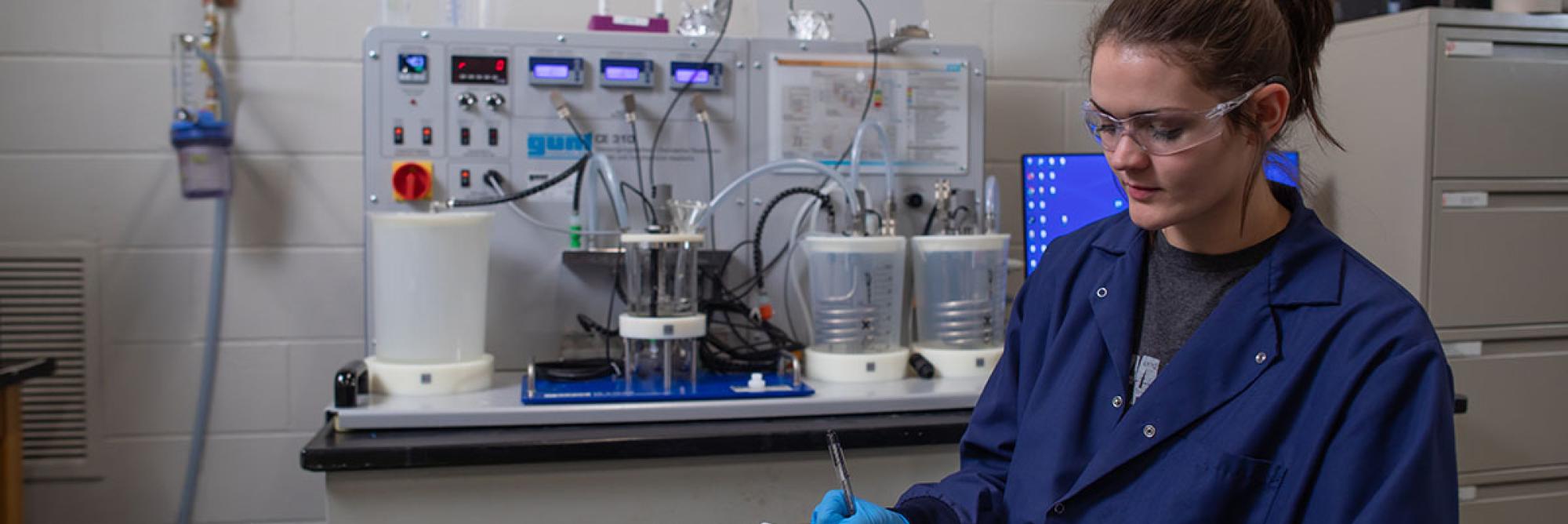Master's Degree (MS) in Chemical Engineering
Who is this program for?
A master's degree in Chemical Engineering is ideal for individuals aiming to advance their expertise in designing and optimizing processes for industries such as energy, pharmaceuticals, or materials science, preparing for careers in process engineering, research, or product development. This program is also valuable for those pursuing roles as chemical engineers, sustainability consultants, or R&D specialists, where advanced knowledge in reaction engineering, thermodynamics, and materials innovation is essential for tackling global challenges.
Program Overview
The Master’s in Chemical Engineering program equips students with advanced skills in chemical process design, systems engineering, and materials development. Through a combination of core coursework and specialized electives, students explore areas such as reaction kinetics, transport phenomena, thermodynamics, and sustainable engineering practices. The program prepares graduates for leadership roles in industries including energy, pharmaceuticals, food processing, and environmental technology, or for further academic or professional study.
Our research specialization areas include:
- Biomaterials
- Drug Delivery
- Energy and Batteries
- Environmental Engineering
- Interfacial Engineering
- Materials Synthesis and Nanomaterials
- Membranes/Advanced Separations
- Molecular Dynamics
- Nanomaterials
- Polymer Science and Engineering
- Process Design
- Water Treatment
Admission Requirements
Please view the Graduate School's Admission Requirements. If there are Program Specific Requirements listed below, those will also apply.
Application Requirements
Please view the application requirements for the Graduate School. If there are Program Specific Requirements listed below, those will also apply.
Application Deadlines
Domestic & International Students
-
Fall
- 04/15/2026
-
Spring
- 09/15/2026
FIND OUT EXACTLY
What You'll Learn
The Department offers the M.S. degree under two distinct plans. The Plan A degree requires 24 hours of coursework, 6 hours of research credit, as well as the preparation and defense of a research-based thesis. The Plan B degree requires 30 hours of coursework as well as successful completion of a comprehensive oral final examination. By Departmental policy, Plan B is restricted to students who are employed full-time in a position which requires the day-to-day practice of engineering or who are self-supporting. In such cases, the student must be admitted at the outset by the Graduate Committee under Plan B. This requirement specifically prohibits any student who has been supported by an assistantship or fellowship from subsequently opting for Plan B.
Degree requirements, course descriptions and academic policies for all programs are detailed in the University Catalog.
Explore Funding Options
As a graduate student, there are additional opportunities for student funding. Once you are admitted into a degree-bearing graduate program at UK, you can apply for a wide variety of financial assistance, including assistantships and fellowships. These opportunities can be tied to your program’s availability, so you should inquire with your program director about opportunities available within your program!

Get Involved!
Students who get involved in activities outside of the classroom tend to do better academically and develop meaningful relationships with others at UK. Our network of student organizations and activities has something for everyone, from academic to professional to fun!
Get More Information
Complete the form to get the latest updates on this program, including special events and application deadlines.
Discover your Future
At the University of Kentucky, we provide personalized support, innovative resources, and countless opportunities to help you turn your aspirations into achievements.



